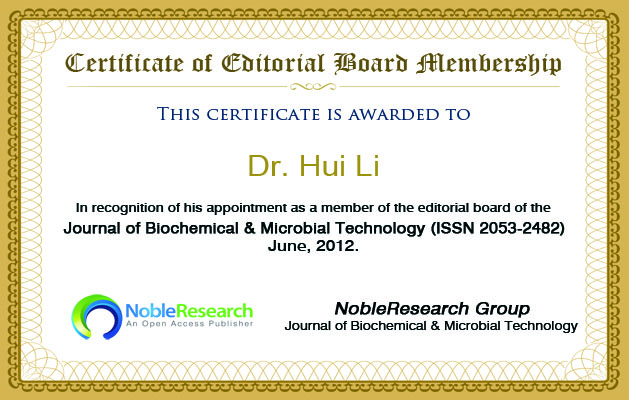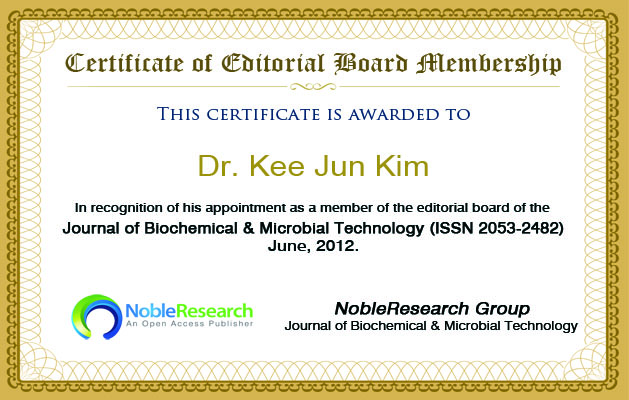
The email alerts service allows anyone who registers their email address to be notified via email when new content goes online.
Recommend this journal to your friend or library.
Manuscripts should be submitted online through our website or as an email attachment to the editorial office at editor.jbmt@nobleresearch.org
- Dr. Gerald M. Carlson,
- Professor and Chairman,
- Department of Biochemistry and Molecular Biology,
- The University of Kansas Medical Center,
- Kansas City,
- USA.
- BiographyOpen or Close
Dr. Gerald M. Carlson is a Professor and Chairman of Research at the Department of Biochemistry and Molecular Biology, University of Kansas Medical Center , Kansas City. Dr. Carlson’s research background was strengthened in the field of Microbiology. Dr. Carlson has experience in educational departments such as a Marion Merrell Dow/Missouri Professor of Structural Biology and Head, Division of Molecular Biology and Biochemistry, School of Biological Sciences, The University of Missouri – Kansas City; Professor and Vice-Chairman, Department of Biochemistry, College of Medicine, The University of Tennessee, Memphis; Associate Professor, Department of Biochemistry, College of Medicine, The University of Tennessee, Memphis; Associate Professor, Department of Biochemistry, University of Mississippi Medical Center, Jackson, MS; Assistant to Associate Professor, Department of Chemistry, University of South Florida, Tampa, FL.
- ExpertiseOpen or Close
His research group is studying how communication among subunits of the enzyme phosphorylase kinase (PhK) regulates its enzymatic activity. PhK, which functions in the cascade activation of glycogen breakdown, is a particularly attractive system to study regulatory mechanisms of this type because it is among the largest and most complex enzymes known. Of its 1.3 million Da mass, 90% has a regulatory role. Through allosteric sites on its three regulator subunits, PhK integrates metabolic (ADP), hormonal (cAMP and Ca2+) and neural (Ca2+) signals, resulting in large changes in its activity. This activity change in response to diverse physiological signals allows for the tight control of glycogenolysis and subsequent energy production, e.g., in skeletal muscle PhK activation by Ca2+ ions couples contraction with energy production to sustain contraction.
- CertificateOpen or Close
- PublicationsOpen or Close
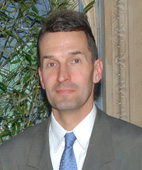
- Dr. Jürgen Bernhagen, Professor,
- Department of Biochemistry and Molecular Cell Biology,
- Chair- Biochemistry and Molecular Cell Biology,
- Director-Institute of Biochemistry and Molecular Cell Biology,
- Spokesman Graduate School,
- RWTH Aachen University,
- Aachen, Germany.
- BiographyOpen or Close
Dr.Jürgen Bernhagen is a Professor in the Department of Biochemistry and Molecular Cell Biology, Chair and Professor of Biochemistry and Molecular Cell Biology and also Director Institute of Biochemistry and Molecular Cell Biology, Pauwelsstrasse 30, Germany. Dr. Bernhagen earned his M.Sc. (Diploma) in Biochemistry from University of Tuebingen, in 1992 and his Doctorate degree in Biochemistry from University of Tuebingen, New York in 1994. Dr. Bernhagen’s some of professional appointments are Scientist, Picower Institute for Medical Research in Manhasset, New York (1992-1994); Head of the Department of Biochemistry at the Institute for Interfacial Engineering, University of Stuttgart (1995-2000) and Assistant Professor, Institute for Interfacial Engineering, University of Stuttgart (2000-2001). He has published 83 research articles and also holds 18 patents.
- ExpertiseOpen or Close
Dr. Bernhagen major research interests are in the field of biochemistry like drug discovery of cytokines, chemokines and their receptor, protein engineering, protein structure and folding, biochemistry of the COP9 signalosome and various other signaling pathways, signal transduction, GPCRs.
- CertificateOpen or Close
- PublicationsOpen or Close
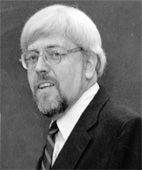
- Dr. Knox Van Dyke, Professor,
- Department of Biochemistry & Molecular Pharmacology,
- West Virginia University,
- Morgantown,
- USA.
- BiographyOpen or Close
Dr. Knox Van Dyke is a Professor of Biochemistry/Molecular Pharmacology -1 Med Center Drive . Dr. Knox Van Dyke ‘s research background was strengthened in the field of Biochemistry, Pharmacology and Toxicology. Dr. Knox Van Dyke has received many honors i.e. Benedum Distinguished Research Scholar Award for Cancer and Malaria Drug Resistance Studies (1991-1992); Kentucky Colonel Honorary Award for Cancer research (2002); Leading Scientists of the World-International Biographical Centre-Cambridge England (2006); Great Minds of the 20th Century (2007); 2009-Today Who’s Who in the World. He worked in educational departments as Assistant Professor of Pharmacology –WVU Med Center, Associate Professor of Pharmacology – WVU Med Center, Professor of Pharmacology and Toxicology-WVU Med Center.
- ExpertiseOpen or Close
Development of New Anti-malarial Chemotherapy aimed at drug resistance; Development of Anticancer Drugs that Inhibit- multiple drug resistance(MDR) and Metastasis; Development of Anticancer Drugs that are Synergistic and Selective for cancer stem cells; Luminescence chemistry and analytical uses relevant to Biochemistry and Pharmacology; Use of saliva assays to measure host- protective immunological systems; Development of early mechanisms to detect and prevent diabetes; Use of antioxidant and anti-nitrosant systems to prevent neurodegenerative diseases.
- CertificateOpen or Close
- PublicationsOpen or Close
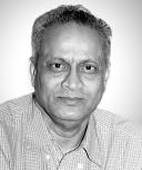
- Dr. Ramareddy V Guntaka, Professor,
- Department of Microbiology,
- Department of Immunology,
- Department of Biochemistry,
- The University of Tennessee Health Science Center,
- Memphis, USA.
- BiographyOpen or Close
Dr. Ramareddy V Guntaka is a Professor at the Department of Molecular Sciences, University of Tennessee Health Sciences Center, Memphis. Dr. Ramareddy's research background was strengthened in the field of Microbiology.He earned his Ph.D in Microbiology, Kansas State University, Manhattan, Kansas (1970). He was graduated with B.Sc in Chemistry and Biology, A.N.R. College, Gudivada, India. Dr. Ramareddy got his M.Sc in Microbiology, U.P. Agricultural University, Pantnagar, U.P., India (1965). Dr. Ramareddy has received many honors and awards i.e. Government of India Merit Scholarship, 1963-1965; American Cancer Society Senior Dernham Fellowship, 1973-1975; Research Career Development Award, National Institutes of Health 1979-1984. He was appointed in various positions like Associate Professor, Department of Microbiology, School of Medicine, University of Missouri, Columbia; Assistant Professor, Department of Microbiology, College of Physicians and Surgeons, Columbia University; Assistant Research Microbiologist, University of California, San Francisco. He has published over 110 research papers and also holds a patent.
- ExpertiseOpen or Close
Currently there are three ongoing projects in his laboratory: (i) Control of Fibrosis by Collagen Gene-Specific Oligonucleotides; ii) Cloning and characterization of Hepatitis C Virus and iii) Studies on the Y-box protein YB. In the first project, we are applying a novel triplex strategy to intervene reactive fibrosis, which is responsible for the damage of various organs. This fibrosis is mainly due to abnormal deposition of high levels of type I collagen. They have found that a triplex-forming oligonucleotide (TFO) specifically forms triplexes (see figure below) with the polypurine/polypyrimidine tract located in the promoter region of type I collagen gene and inhibits collagen gene transcription. Currently he is carrying out experiments using animal models of fibrosis to determine the effect of this TFO on fibrosis. In particular they are working on experiments to specifically target this TFO to stellate cells of the liver.
- CertificateOpen or Close
- PublicationsOpen or Close
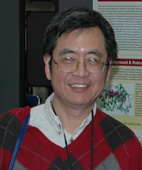
- Dr. Parkson Lee-Gau Chong, Professor,
- Department of Biochemistry,
- Center for Substance Abuse Research,
- Temple University School of Medicine,
- Philadelphia, USA.
- BiographyOpen or Close
Dr. Parkson Chong is a Professor of Biochemistry, Professor-Center of Substances Abuse Research at Temple University, School of Medicine. He has received his Ph.D. degree in 1982 from University of Illinois at Champaign-Urbana, where he studied membranes under high hydrostatic pressures. Dr. Chong was graduated with a BS degree from the University Tsing-Hua, Taiwan, in 1973, and received his MS from Catholic University of America, Washington, DC in 1977. Dr. Chong previously held positions are Assistant Professor- Department of Biochemistry, Meharry Medical College (1987 – 1992); Associate Professor-Department of Biochemistry, Meharry Medical College (1992 – 1993) and Associate Professor-Dept. of Biochemistry, Temple University School of Medicine (1993 – 2003).He has more than 30 years of research experience in membrane biophysics and biochemistry. He has published 80 research articles and holds a patent.
- ExpertiseOpen or Close
Dr. Parkson Chong research has been focused on sterol superlattices, physical properties of archaeal tetraether lipid membranes, and novel designs of liposomes for targeted imaging and drug delivery.
- CertificateOpen or Close
- PublicationsOpen or Close
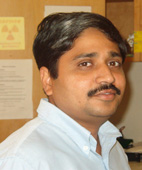
- Dr. Kota V Ramana, Professor,
- Department of Biochemistry & Molecular Biology,
- University of Texas Medical Branch,
- Galveston, USA.
- BiographyOpen or Close
Dr. Ramana is a Professor at Department of Biochemistry and Molecular Biology, University of Texas Medical Branch, Galveston, TX-USA. Dr. Ramana received B.S degree from Nagarjuna University, Guntur, India in 1989 and M.S in Biosciences from Indian Institute of Technology, Roorkee, India in 1992. He has received his Ph.D in Biochemistry from Postgraduate Institute of Medical Education &Research, Chandigarh, India in 1998. Dr. Ramana’s some of professional appointments are Post-Doctoral Fellow-Dept. of Human Biological Chemistry and Genetics, University of Texas Medical Branch, Galveston, Texas (1998-2003); Assistant Professor (research)-Dept. of Biochemistry and Molecular Biology, University of Texas Medical Branch, Galveston, Texas (2003-2008) and Associate Professor (research)-Dept. of Biochemistry and Molecular Biology, University of Texas Medical Branch, Galveston, Texas (2008-2011). He has published 90 peer reviewed articles.
- ExpertiseOpen or Close
Dr. Ramana’s research interests are to examine the involvement of cellular metabolism and oxidative stress signals in inflammation and to delineate the role of aldo-keto reductases and anti-oxidant natural products in the inflammatory pathways. He uses various genetic, biochemical and cell biological approaches to analyze inflammatory responses regulated by cellular metabolites in various inflammatory pathologies such as sepsis, uveitis, asthma and cancer.
- CertificateOpen or Close
- PublicationsOpen or Close
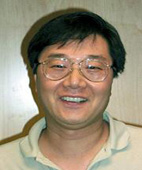
- Dr. Suk-Hee Lee, Professor,
- Department of Biochemistry & Molecular Biology,
- Indiana University School of Medicine,
- Indianapolis, USA.
- BiographyOpen or Close
Dr. Suk-Hee Lee is a Professor, Department of Biochemistry & Molecular Biology, Indiana University School of Medicine, Indianapolis. His research background is strengthened in the field of virology and molecular biology. Dr. Suk-Hee Lee was awarded doctoral degree in Microbiology from University of Texas, Austin, Texas. Dr. Suk-Hee Lee is a member at Indiana University, Simon Cancer Center & Walther Oncology Center and also worked as a graduate faculty, Indiana University Graduate School. He is an Associate Member in Walther Oncology Center & Indiana University Cancer Center (1997-2001) and an Assistant Member of Virology & Molecular Biology, St. Jude Children’s Research Hospital, Memphis, TN (1992-1997). Dr. Suk-Lee worked as an Associate Professor of Biochemistry & Molecular Biology, Indiana University School of Medicine, Indianapolis (1997-2002) and Adjunct Faculty in Pathology, University of Tennessee Health Science Center, Memphis, TN (1993-1997).
- ExpertiseOpen or Close
Dr. Suk-Hee Lee long-term goal is to understand how a SET-transposase chimeric protein, called Metnase in humans functions in DNA double-strand break (DSB) repair, replication fork arrest, and chromosome decatenation, and what role the SET and transposase domains may play. Given that Metnase requires both the SET and transposase domains for its function(s) in DSB repair, the acquisition of new functions may have resulted from a chimeric fusion between transposase and the SET domains. He is also interested in cisplatin damage and its repair in humans. Cisplatin is a widely used anti-cancer chemotherapeutic drug that induces DNA damage by forming cisplatin-DNA adducts in cells. In vivo and in vitro studies strongly suggest that most of the cisplatin-DNA adducts are repaired through nucleotide excision repair (NER) pathway. Recognition of DNA damage is a critical step in the early stage of repair.
- CertificateOpen or Close
- PublicationsOpen or Close
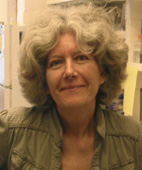
- Dr. Dorota Skowyra, Associate Professor,
- Department of Biochemistry and Molecular Biology,
- Edward A. Doisy Research Center,
- St. Louis University School of Medicine,
- St. Louis, USA.
- BiographyOpen or Close
Dr. Dorota Skowyra is an Associate Professor in the Department of Biochemistry and Molecular Biology, Saint Louis University School of Medicine, St. Louis, MO, USA. Dr. Skowyra was awarded doctoral degree from University of Gdansk, Poland. During her tenure of service she served in various capacities including positions such as Fogarty International Fellow, NIH, NCI, LMB, Bethesda, MD, USA; Research Associate, Department of Biochemistry, Baylor College of Medicine, Houston, TX; Fellow in Division of Biology, California Institute of Technology, Pasadena, CA; Assistant Professor of Biochemistry and Molecular Biology, Saint Louis University School of Medicine, St. Louis, MO. Dr. Skowyra was conferred many awards like First Degree Award of the President of Gdansk University for Ph.D. Thesis (1991) and FEBS Youth Travel Award to attend a course “Regulatory Mechanisms of DNA Replication”, Bourg St. Maurice, France (1991).
- ExpertiseOpen or Close
Dr. Dorota Skowyra research interest includes the role, function and regulation of the ubiquitin-proteasome system that degrades selected cellular proteins in response to specific signals and that generates immunogenic peptides for antigen presentation. Their current projects focus on 1) the role, function and regulation of the Cdc34/SCF family of ubiquitin ligases, especially in the context of cell cycle and gene expression (mechanism of ubiquitination); 2) the function and regulation of the proteasome and immunoproteasome (mechanism of proteolysis); 3) large-scale analysis of peptides derived from natural proteasomal substrates as an approach to identify natural antigenic epitopes and changes in specific cellular pathways regulated by proteolysis (new technology development); identification and characterization of new chemical regulators of the proteasome (high throughput screening, drug discovery).
- CertificateOpen or Close
- PublicationsOpen or Close
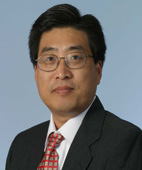
- Dr. X. Frank Yang,
- Associate Professor,
- Department of Microbiology and Immunology,
- Indiana University School of Medicine,
- Indianapolis, USA.
- BiographyOpen or Close
Dr. X. Frank Yang is an Associate Professor at Department of Microbiology and Immunology, Indiana University School of Medicine, Indianapolis. Dr. Yang graduated with BS from Liaoning University, China in 1985 and MS from Chinese Academy of Science, China in 1988. He received his Ph.D from the University of Texas at Dallas in 1997. Dr. Yang’s professional appointements are Assistant Professor, Department of Microbiology and Immunology, Indiana University School of Medicine, Indianapolis, IN (2005-2011); Graduate Faculty, Indiana University, Bloomington, IN (2005-present); Assistant Professor, Department of Microbiology, The University of Texas Southwestern Medical Center, Dallas, TX (2003-2005) and Instructor , Department of Microbiology, The University of Texas Southwestern Medical Center, Dallas, TX (2001-2003).
- ExpertiseOpen or Close
Dr. Yang's research interests are bacterial pathogenesis; bacterial signal transduction; bacterial gene regulation; bacterial physiology; bacterial responses to environmental and host signals; spirochete biology; polymicrobial interactions; vector-borne pathogens. In particular, Dr. Yang's team is interested in two groups of pathogens, the spirochetal pathogens and the vector-borne pathogens. They employ the Lyme disease agent, Borrelia burgdorferi, as a model system to study the host-pathogen interactions. They have recently identified two key regulatory networks that modulate expression of many Borrelia genes; one network appears to be essential for bacteria to infect mice, whereas the other is important for spirochetes to survive in the tick vector. Dr. Yang's team is currently focusing on elucidating the mechanisms of how B. burgdorferi senses the signals from each host and turns on each regulatory network.
- CertificateOpen or Close
- PublicationsOpen or Close
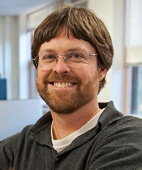
- Dr. Jeffrey Blanchard, Associate Professor,
- Department of Microbiology,
- University of Massachusetts,
- Morrill Science Center, USA.
- BiographyOpen or Close
Dr. Blanchard is an Associate Professor at the University of Massachusetts Amherst.He earned his Ph.D. in Botany from the University of Georgia, Athens, GA (1990-1995). He got his MA, B.S., Biology - Honors from Worcester Polytechnic Institute, Worcester (1984-1987). In 2010 he was awarded with Harvard University Bullard Fellowship. Prior to coming to UMass, Dr. Blanchard has worked at the biotechnology companies Genentech and Promega and the non-profit National Center for Genome Resources.Hehas published many research articles and holds a patent.
- ExpertiseOpen or Close
Dr. Blanchard current research focuses on plant decomposition by anaerobic bacteria and has applications in the development of renewable biofuels, forest carbon cycling, and human health. His technical expertise is in the areas of microbial genomics, bioinformatics, metabolic modeling and molecular biology.
- CertificateOpen or Close
- PublicationsOpen or Close
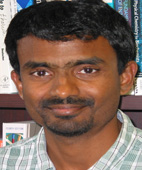
- Dr. Tharun Sundaresan, Associate professor,
- Department of Biochemistry and Molecular Biology,
- Uniformed Services University of the Health Sciences,
- F. Edward Hébert School of Medicine,
- Bethesda MD, USA.
- BiographyOpen or Close
Dr. Tharun Sundaresan is an associate professor at the Department of Biochemistry from Uniformed Services University of the Health Sciences, Bethesda, Maryland. He obtained his Ph.D from the Center for Cellular and Molecular Biology (CCMB), Hyderabad. He got his B. Sc. and M. Sc. in Biochemistry from P.S.G. (autonomous) College of Arts and Science, Coimbatore, India, affiliated to Bharathiar University, Coimbatore, India. He carried out his post-doctoral research in the laboratory of Dr. Roy Parker at the University of Arizona-Howard Hughes medical institute, Tucson, Arizona. He published many research papers and received many honours and awards.
- ExpertiseOpen or Close
Dr. Tharun Sundaresan research interests include understanding the mechanism of mRNA decay in eukaryotic cells using the budding yeast Saccharomyces cerevisiae as the model system. In particular, they focus on the role of the Lsm1-7-Pat1 complex in mRNA decapping using the tools of genetics, biochemistry and molecular biology.
- CertificateOpen or Close
- PublicationsOpen or Close
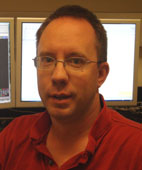
- Dr. Matthew Gage, Associate Professor,
- Department of Chemistry and Biochemistry,
- Northern Arizona University,
- Arizona, USA.
- BiographyOpen or Close
Dr. Gage is an Associate Professor in the department of Chemistry and Biochemistry at Northern Arizona University in Flagstaff, AZ. Dr. Gage received his doctoral degree from Purdue University. He did his B.S. in Chemistry with Honors and in Molecular Biology with Honors from University of Wyoming (1996). His technical expertise is in the areas of protein-protein interactions, fluorescence, circular dichroism, and molecular biology. Prior to joining the faculty at NAU, Dr. Gage was a post-doctoral research associate at the University of Delaware. He holds two patents and received many honours and awards.
- ExpertiseOpen or Close
Dr. Gage major focus in his lab is characterizing the disordered nature of the transcription regulatory protein FlgM. FlgM binds the Sigma-28 transcription factor, which controls the synthesis of the last-stage genes in flagella synthesis. His lab is using a variety of biophysical techniques to understand the structural nature of FlgM, how binding changes from organism to organism and also how the FlgM protein is exported from the cell. Their work not only will increase understanding of the interactions between ordered and disordered proteins but also has potential therapeutic implications in the control of bacterial infections.
- CertificateOpen or Close
- PublicationsOpen or Close
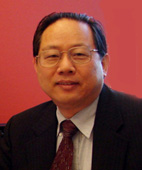
- Dr. James W. Lee, Associate Professor,
- Department of Chemistry and Biochemistry,
- Old Dominion University,
- Assistant Director- Virginia Coastal Energy Research Consortium,
- Norfolk, Virginia,
- USA.
- BiographyOpen or Close
Dr. James W. Lee is an Associate Professor at Department of Chemistry and Biochemistry, Old Dominion University, Norfolk, USA and Assistant Director of VCERC at Old Dominion University. Dr. Lee holds his Ph.D. in Photosynthesis Research from department of Physical Chemistry and Biochemistry, Cornell University (1993). He got M.S. in Plant Physiology and Biochemistry from Cornell University (1988).
- ExpertiseOpen or Close
Dr. James Lee’s research interest is focused on the following two bioenergy research areas with the objective to provide green/clean energy and control global warming: (1) Designer photosynthetic organisms for photobiological production of biofuels from water and carbon dioxide. (2) Smokeless biomass pyrolysis for producing biofuels and biochar as a green/clean energy solution to control global warming. This “carbon-negative” biomass-pyrolysis energy-production concept applies biochar as a soil amendment and carbon sequestration agent.
- CertificateOpen or Close
- PublicationsOpen or Close
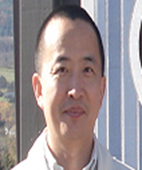
- Dr. Jianxun (Jim) Song, Associate professor,
- Department of Microbiology & Immunology,
- Penn State University College of Medicine,
- PA 17033,
- USA.
- BiographyOpen or Close
Dr. Jianxun (Jim) Song is a tenured associate professor in the Department of Microbiology and Immunology from the Pennsylvania State University College of Medicine, United States. The base of expertise on T cell biology needed to perform his research began to develop while he was a postdoctoral scholar and research scientist from the years 2001-2007 under the mentorship of Dr. Michael Croft at the La Jolla Institute for Allergy and Immunology. He became a junior faculty at The Pennsylvania State University College of Medicine in 2007, and extended his research on Developmental Immunology and Stem Cell Biology. As a PI on previous university-, foundation-, or NIH-funded grants, he laid the groundwork for the research by developing highly reactive T lymphocytes from pluripotent stem cells (PSC). His laboratory was the first to show that induced PSC differentiate into functional T cells for cell-based therapies.
- ExpertiseOpen or Close
Dr. Jianxun (Jim) Song lab is working on Costimulation in T lymphocyte memory, Regulation of differentiation of T lymphocytes from pluripotent stem cells.
- CertificateOpen or Close
- PublicationsOpen or Close
- Dr. Hui Li, Assistant Professor,
- Department of Pathology in the Cancer Center,
- University of Virginia,
- Charlottesville, USA.
- BiographyOpen or Close
Dr. Hui Li is as an Assistant Professor in the department of pathology University of Virginia, Charlottesville, VA. Dr. Hui received his PhD in Molecular Biology fromCase Western Reserve University, Cleveland, OH (2003). He did his BS in Chemical Physics from the University of Science and Technology of China, China (1998). He did his Post-Doc in Molecular Biology from Yale University, New haven, CT (2003-2009). He received many honours and awards like Stand Up To Cancer Innovator Award in 2011.
- ExpertiseOpen or Close
Dr. Hui Li research interest includes Gene regulation and the implications on human diseases, RNA trans-splicing and cis-splicing of adjacent genes in both normal and cancer cells.
- CertificateOpen or Close
- PublicationsOpen or Close
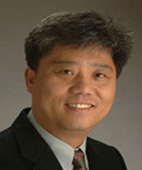
- Dr. Kee Jun Kim, Assistant Professor,
- Department of Microbiology, Molecular Genetics and immunology,
- University of Kansas Medical Center,
- Kansas City, USA.
- BiographyOpen or Close
Dr. Kee Jun Kim is an assistant professor in the department of Microbiology, Molecular Genetics and Immunology at the University of Kansas Medical Center, Kansas City, KS. He earned his PhD (BCMB) University of Tennessee, Knoxville TN (1990-1996). He got his BS and MS in Biology from Seoul National University, Seoul Korea. Dr. Kim was a post doctoral associate at University of Virginia Health Science Center and Johns Hopkins School of Medicine. He has received many honours and awards. Dr. Kee Jun has published many research articles and one book chapter. He received a grant of $110,000 direct cost per year for 5 years from NIH/NIAID (2009-2014).
- ExpertiseOpen or Close
Dr. Kee Jun Kim research interest focuses on CNS-infecting pathogens (E. coli K1, HIV and Cryptococcus neoformans) and their interaction with brain microvascular endothelial cells to understand the molecular mechanisms by which those pathogens traverse across the BBB to gain access into the CNS. In addition to infectious agents his lab also investigates the MMP- and thrombin-dependent modulation of BBB function.
- CertificateOpen or Close
- PublicationsOpen or Close




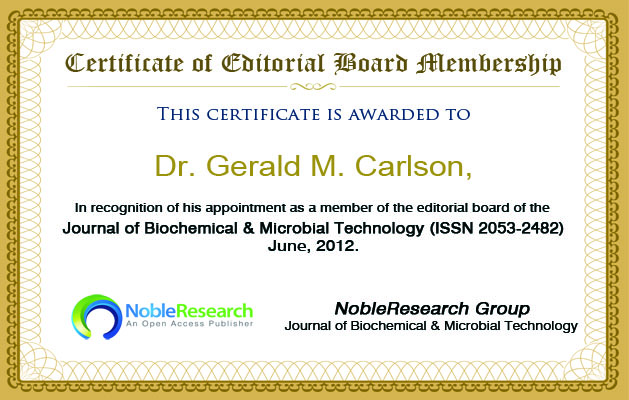
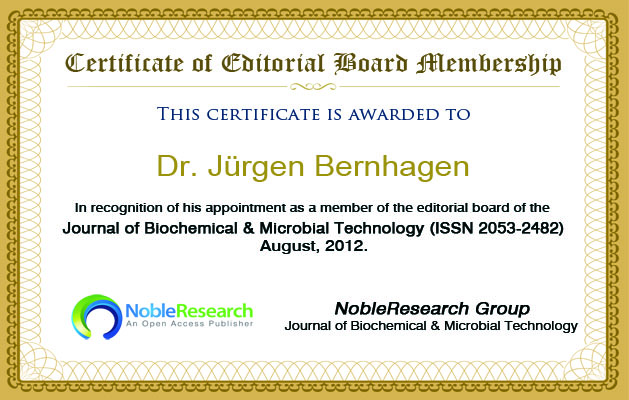
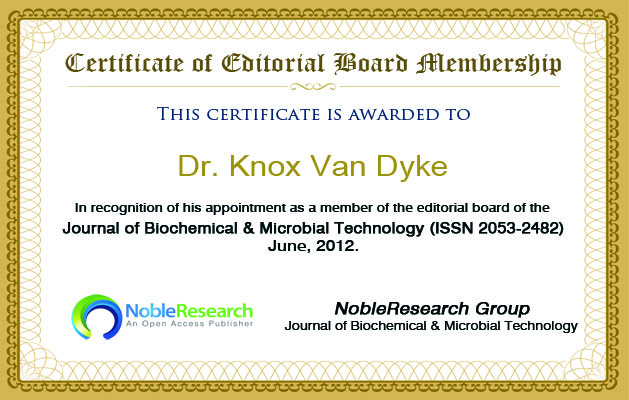
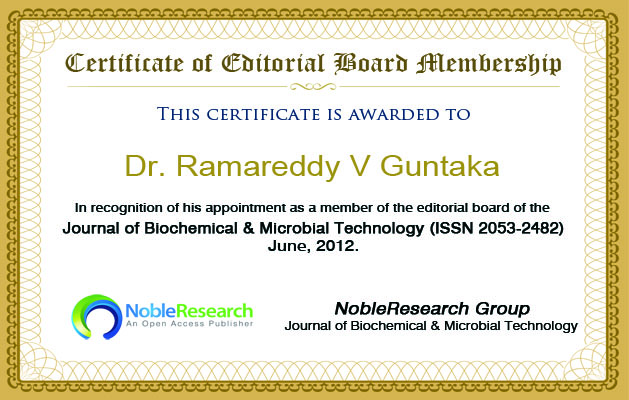
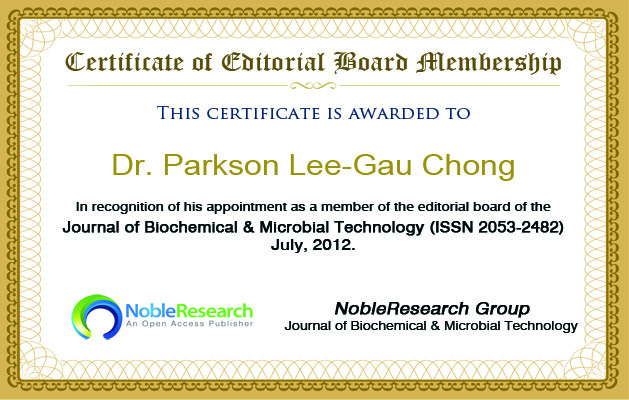
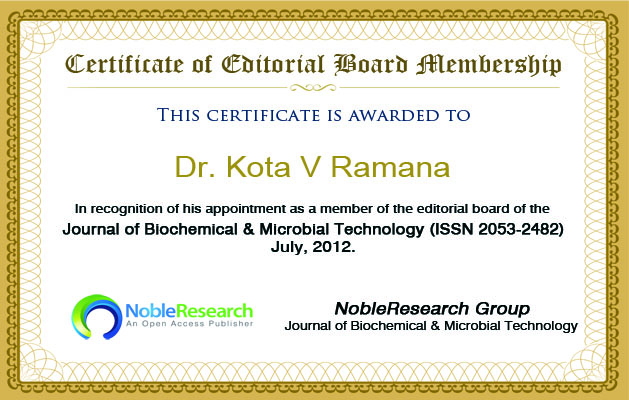
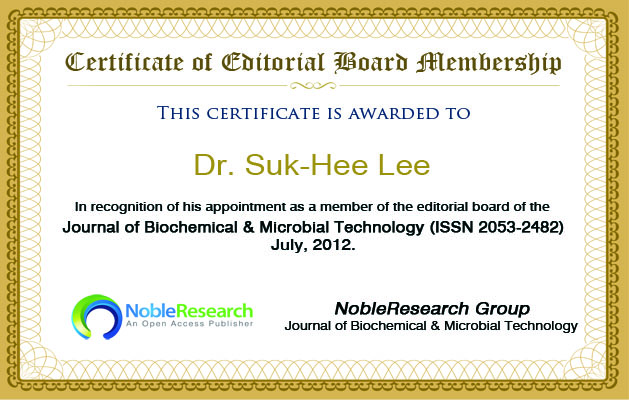
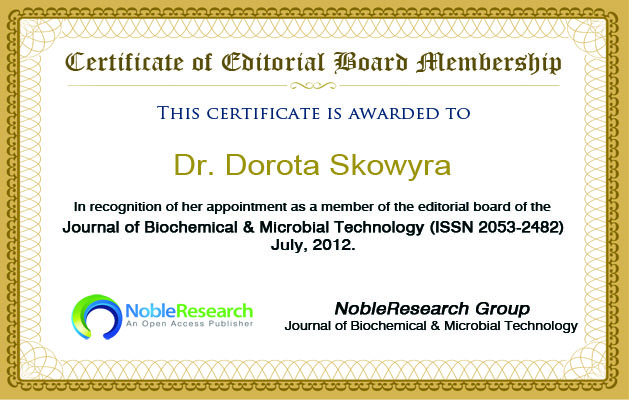

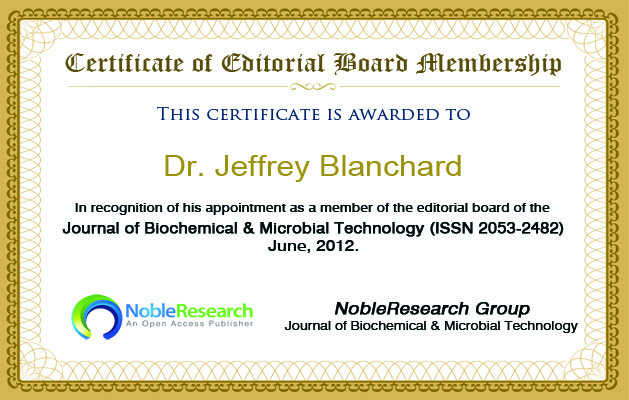
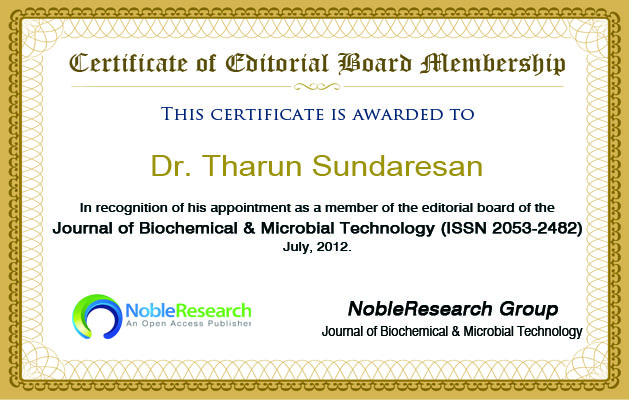
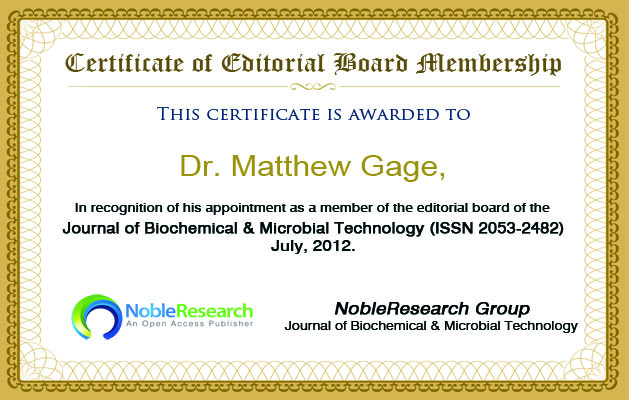
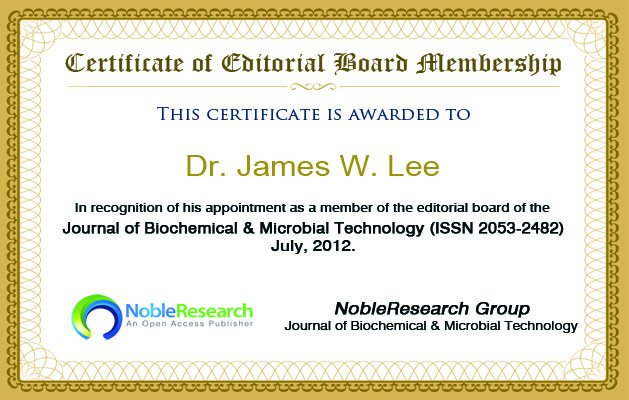
 Songf JDE-JPEG.jpg)
